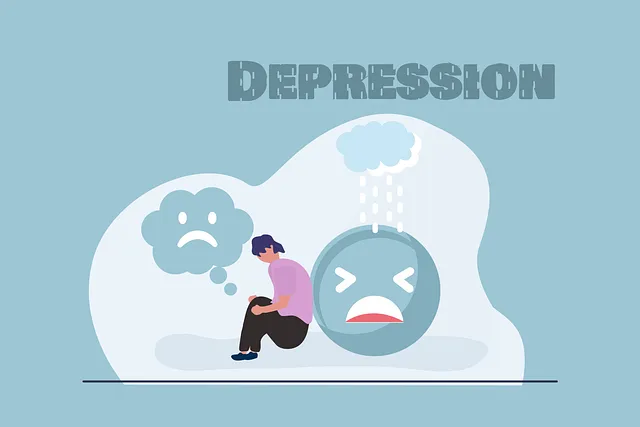Kaiser Permanente in Parker, Colorado, offers diverse mental wellness programs combining evidence-based practices through accessible phone appointments, catering to unique client needs and enhancing overall well-being. Their structured evaluation methods, leveraging KPIs like reach, engagement, and satisfaction, guide improvements based on both data and individual feedback, ensuring optimal mental health outcomes aligned with population needs.
Mental wellness program evaluation is crucial for understanding and enhancing initiatives like those offered by Kaiser Permanente. This article delves into the methodologies behind evaluating these programs, highlighting the significance of phone appointments as a support tool. We explore Parker’s methodological approach, focusing on key performance indicators (KPIs) to measure success. Additionally, we discuss continuous improvement strategies through feedback loops and data analysis techniques, utilizing insights from Kaiser Permanente’s mental health appointment phone number to foster better patient outcomes.
- Understanding Kaiser Permanente's Mental Wellness Programs
- The Role of Phone Appointments in Mental Health Support
- Evaluating Program Effectiveness: Parker's Methodological Approach
- Key Performance Indicators for Mental Wellness Initiatives
- Continuous Improvement: Feedback Loops and Data Analysis Techniques
Understanding Kaiser Permanente's Mental Wellness Programs

Kaiser Permanente, a renowned healthcare provider, offers a comprehensive range of mental wellness programs designed to support individuals in their emotional well-being journey. These programs cater to diverse needs, from stress management and anxiety relief to more intensive treatments for severe mental health conditions. One key aspect that sets Kaiser Permanente apart is its commitment to accessible care, ensuring that mental health services are readily available to its members. Individuals can reach out to the dedicated mental health appointment phone number in Parker, Colorado, to take the first step towards seeking support.
The programs often incorporate a blend of evidence-based practices, including communication strategies to enhance understanding and connection, confidence-boosting techniques to foster self-assurance, and compassion cultivation practices aimed at promoting empathy and emotional resilience. These initiatives are tailored to meet the unique requirements of each client, fostering an inclusive environment where individuals can openly discuss their challenges and work towards personal growth and recovery.
The Role of Phone Appointments in Mental Health Support

Phone appointments have become an integral part of mental health support services, offering a convenient and accessible option for individuals seeking assistance. This method, particularly relevant in today’s digital age, allows people to connect with healthcare professionals from the comfort of their homes or wherever they feel safest. The Kaiser Permanente mental health appointment phone number Parker is just one example of how organizations are reaching out to their communities. These remote sessions provide a safe space for individuals to discuss their concerns, receive guidance, and learn coping strategies.
By utilizing phone appointments, mental health professionals can increase access to care, especially for those who may face barriers such as geographical distances or transportation issues. This approach is particularly beneficial for individuals who prefer the anonymity and flexibility of remote support. Moreover, it facilitates ongoing management of mental health conditions, enabling regular check-ins and progress assessments without requiring in-person visits. Integrating phone appointments into a comprehensive mental wellness program can thus enhance public awareness campaigns development, promote mental health education programs design, and contribute to effective stress management strategies.
Evaluating Program Effectiveness: Parker's Methodological Approach

Evaluating the effectiveness of mental wellness programs is a multifaceted process, and Parker’s methodological approach offers a robust framework. This method, often employed by organizations like Kaiser Permanente, utilizes a combination of qualitative and quantitative techniques to measure success. By analyzing participant outcomes through surveys and interviews, researchers can gain insights into the impact of the program on various aspects of mental health. For instance, tracking improvements in self-esteem, stress reduction methods, and overall life satisfaction provides a comprehensive view.
Parker’s strategy involves pre- and post-program assessments, allowing for a direct comparison of changes. This approach enables researchers to identify specific areas of improvement and understand the program’s unique value proposition. Additionally, qualitative feedback from participants through phone appointments or mental health podcast series production can offer nuanced perspectives, ensuring that the evaluation is not solely data-driven but also grounded in individual experiences.
Key Performance Indicators for Mental Wellness Initiatives

Evaluating mental wellness programs is essential for understanding their impact and effectiveness. Key Performance Indicators (KPIs) play a pivotal role in this process, offering a structured way to measure success and identify areas for improvement. For Kaiser Permanente mental health initiatives, KPIs might include the number of individuals reaching out for support, completion rates of therapy sessions, and changes in patient satisfaction scores post-intervention. By tracking these metrics, organizations like Kaiser Permanente can ensure their Mental Health Education Programs Design are aligned with the needs of their population.
For instance, measuring Emotional Well-being Promotion Techniques through regular surveys or feedback forms can highlight the program’s ability to enhance mental wellness among participants. Other relevant KPIs could be the reduction in absenteeism from work or school due to stress-related issues and improved engagement in social activities post-program. Incorporating these diverse metrics allows for a comprehensive understanding of mental wellness initiatives’ short-term and long-term effects, guiding future program enhancements and ensuring resources are allocated effectively.
Continuous Improvement: Feedback Loops and Data Analysis Techniques

Mental wellness programs strive for continuous improvement through robust feedback loops and data analysis techniques. At Kaiser Permanente, for instance, mental health appointments are often conducted via phone, allowing for regular check-ins and real-time adjustments to treatment plans based on client progress and needs. This dynamic approach leverages data analysis tools like the Parker method, which provides structured assessments of symptoms, treatment effectiveness, and client feedback. By integrating these insights, programs can identify areas requiring enhancement, whether it’s addressing burnout prevention, fostering self-esteem improvement, or incorporating compassion cultivation practices.
Effective mental wellness evaluation involves a cyclical process where data is not just collected but actively interpreted to drive change. This involves analyzing trends in client outcomes, comparing them against established benchmarks, and making data-driven decisions to optimize program effectiveness. The goal is to create a supportive environment that nurtures growth and resilience, continually adapting services to meet the evolving needs of those seeking mental wellness support.
Mental wellness program evaluations are crucial for understanding their effectiveness, especially within established healthcare systems like Kaiser Permanente. By employing methodologies such as Parker’s approach, which leverages key performance indicators and data analysis techniques, organizations can ensure their initiatives are achieving desired outcomes. Incorporating phone appointments as a support mechanism has proven beneficial in reaching individuals in need, as demonstrated by Kaiser Permanente’s successful mental health services. Continuous improvement through feedback loops is essential to refining these programs over time, ultimately enhancing the well-being of the community they serve.






